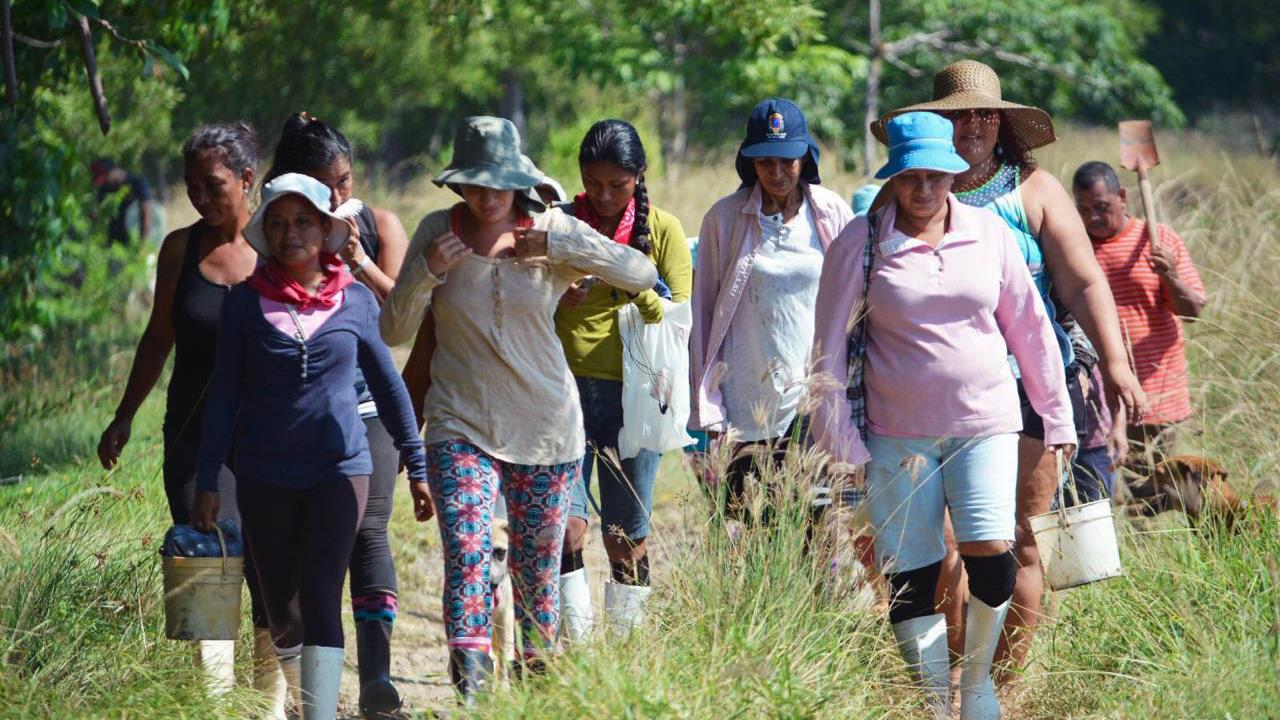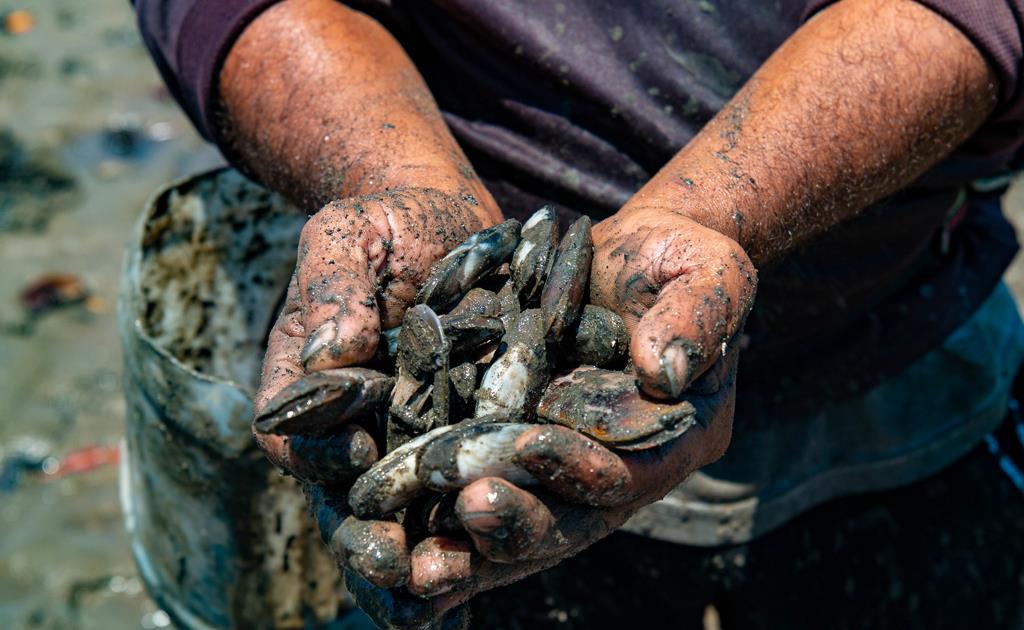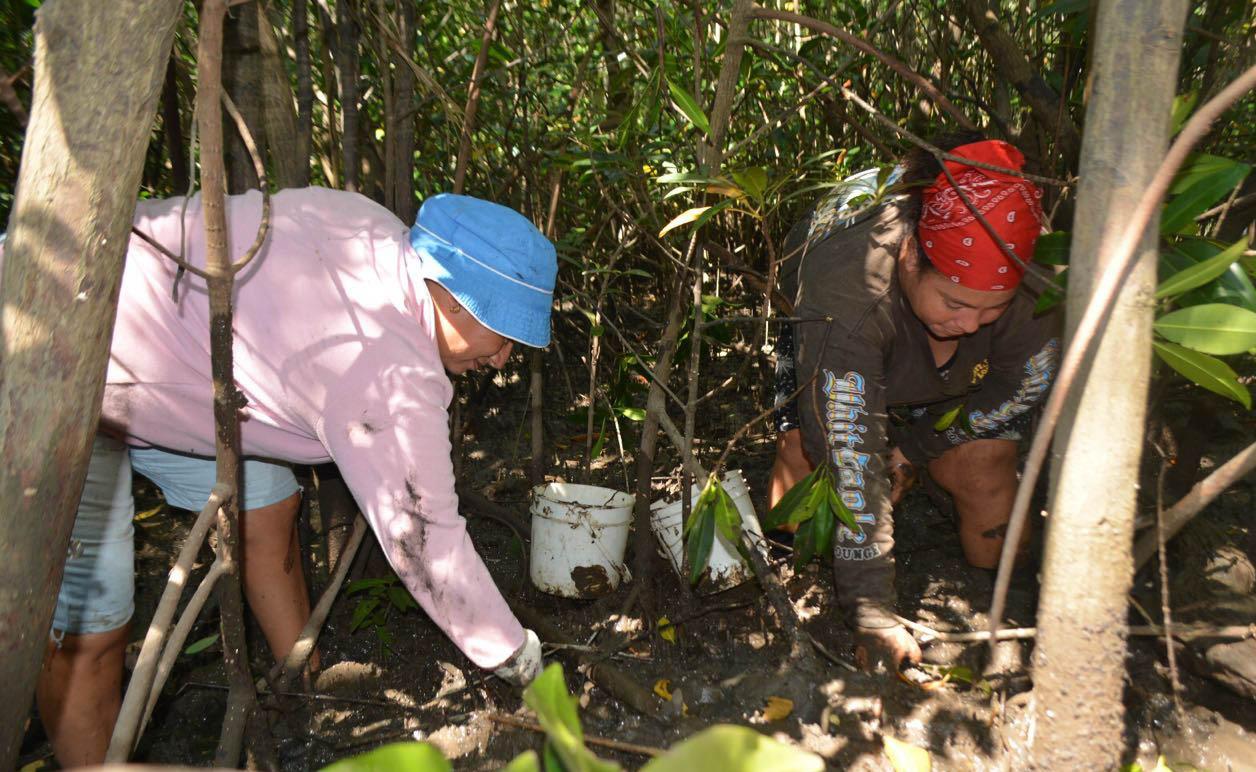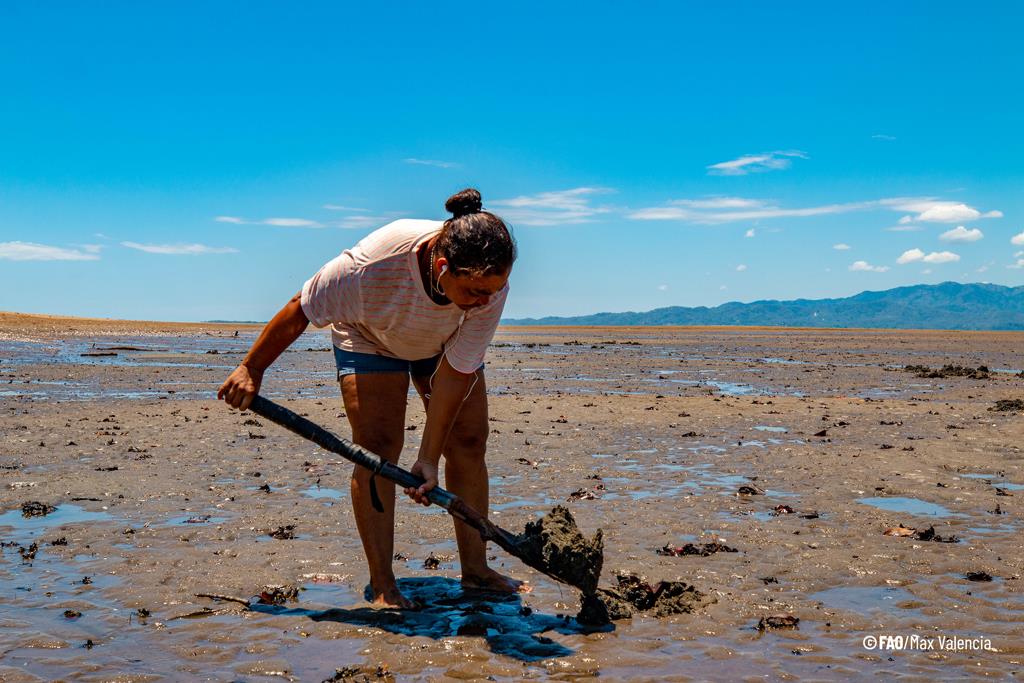
The mangrove forest that feeds a Costa Rican community
Fisherwomen watch over the mangroves in return for a living
Aracelly and her colleagues are on their way to the Chomes mangrove forest for another day of work. ©Sector Pesquero/Luis Gamboa
24/04/2023
The mangrove forests of the Chomes estuary in Costa Rica conceal a rich ecosystem. Capuchin monkeys and parrots share the land with anteaters and sloths, while, beneath the sweet-and-salty water lie caimans, iguanas and snakes – shark sightings are not unheard of.
Yet, hidden in the muddy banks of the river is a treasure trove of edible shellfish. It is for this cornucopia of molluscs that Aracelly Jiménez searches. She wades through the knee-deep water from 5 o’clock in the morning with a group made up mostly of other women from her community, all of whom hope to fill their buckets with mussels, clams and cockles. In these hot and humid conditions, Aracelly and her colleagues are constantly fending off the advances of the local mosquito population.
“In spite of the long hours and hard work, our catch was not very well paid as there were many middlemen,” explains Aracelly. But, apart from the mud fishing, work around Chomes is hard to come by.


As well as hunting for shellfish to sell, the women care for the mangrove forest with knowledge handed down from past generations. Left/top: ©FAO/Max Valencia. Right/bottom: ©Sector Pesquero/Luis Gamboa
In 2017-2018, building on the training that they received from the Food and Agriculture Organization of the United Nations (FAO), the women formed a cooperative called the CoopeMolus Chomes. The cooperative was recognized by a governmental decree in 2017. Aracelly and her 52 colleagues received access to social security, loans and new rights. The decree also gave protection to the mangrove forest.
The women of the cooperative use the knowledge handed down by their parents and grandparents to maintain this unique habitat. They encourage the growth of new trees, clean the sandy areas beneath the twisted roots and prevent further destruction of the forest.
The importance of dense mangrove thickets to our planet’s health cannot be underestimated. These ecosystems remove carbon from the oceans and the atmosphere and store it in the plants and sediment of the estuary, where the shellfish thrive. In turn, the collection of these creatures from the carbon-rich mud allows Aracelly to make a livelihood.
To complement their fishing, the women sell empanadas, ceviche, fish and pre-made dishes conceived from local produce. They take orders on messenger or social media apps.
“Every week each of us earns around 40 000 – 50 000 colones (around USD 75 - 90),” explains Aracelly. “These are funds that none of us had any hope of earning before. This allows us to sell our daily catch directly.”
Aracelly’s endeavours allow her to pay for her son’s education and helps to provide for her family. Still, she wonders whether her earnings are enough.

The women of CoopeMolus Chomes search for clams and mussels, which are then turned into meals that they then sell on digital platforms. ©FAO/Max Valencia
The next step for Aracelly and her co-workers is to open a processing plant that will allow them to profit even more from their endeavours. The idea is to “commercialize the molluscs without having to depend on anyone,” she continues. “This will mean fair pay for all the hard work we do every day.”
Additionally, FAO, the government and Cooperative CoopeSolidar helped the women formalize their activities and obtain a license for mollusc fishing providing them greater livelihood stability. The women have also tapped into government and international financing to invest in their businesses and have been able to access social security to improve their working conditions.
“We women have changed so much,” concludes Aracelly. “Although we have many goals still to aim for, we now know we are not alone. The key is to stay united and organized.”
FAO invests in local communities, providing the training and resources needed to support themselves and their families, while protecting the ecosystems vital to the health of our planet.
Related links
Learn More

